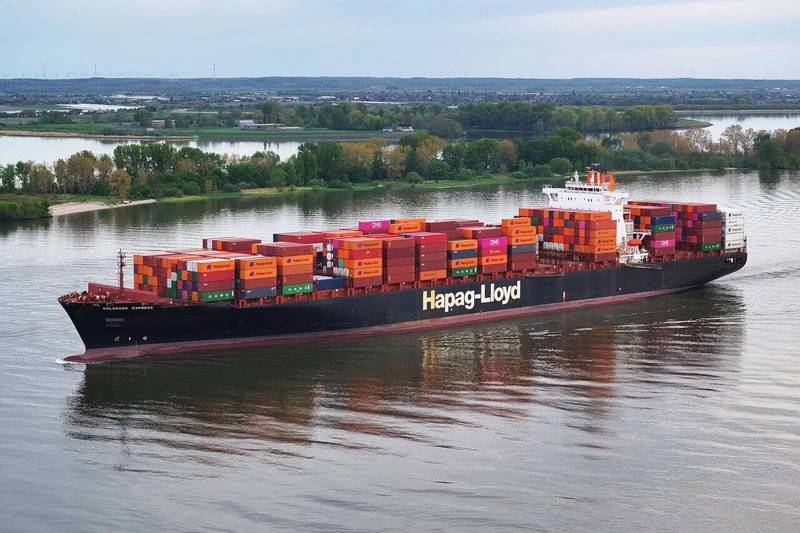ExxonMobil Delivers Bio Marine Fuel Blend to Hapag-Lloyd
Hapag-Lloyd’s vessel Colorado Express has bunkered a B25 bio marine fuel blend comprised of ExxonMobil’s bio fuel, which is able to deliver an estimated 20.1% greenhouse gas well-to-wake reduction compared with conventional marine fuel formulations on an energy basis.
ExxonMobil’s Premium HDME 50 fuel consists 0.10% sulphur Emission Control Area (ECA) fuel, and waste-based fatty acid methyl esters (FAME) derived from used cooking oil methyl ester (UCOME).

The ‘drop-in’ blend met the requirements of ISO 8217:2017, with the exception of the FAME component.
The bio component was made material certified as meeting the sustainability requirements of the RED II: feedstocks not in competition with land for food production.
ExxonMobil’s bio marine fuel blend underwent a range of tests prior to delivery in Antwerp. The receiving vessel, which features a Wärtsilä 10RT-flex96C main engine, bunkered 1,320 metric tonnes of the blend.
“Hapag-Lloyd aims at having net-zero carbon fleet operations by 2045. As part of that commitment, we are continuously looking for opportunities to onboard new bio blends in our fuels mix. We appreciate ExxonMobil’s efforts to supply us bio blend with ULSFO, which is another step forward in our decarbonization journey,” said Ilyas Muhammad, Head of Green Fuels at Hapag-Lloyd.
“We successfully bunkered bio-ULSFO blend at our Colorado Express and so far our operational experience with this product is positive. We look forward to increasing bio-ULSFO consumption in the future,” said Nikolai Doerner, Senior Manager Biofuels at Hapag-Lloyd.
The Colorado Express used the bio marine fuel blend without incident - both NOx and particulate emissions were within accepted limits.
“ExxonMobil has greatly extended its range of ‘drop-in’ bio marine fuel blends. We now offer a B25 ULSFO, a B30 VLSFO, a B7 MGO and a B10 HSFO. This will help our customers access the blend they need to meet their engine operations and GHG emission reduction goals,” added Armelle Breneol, Marine Fuels Technical Advisor, ExxonMobil.
Related News

